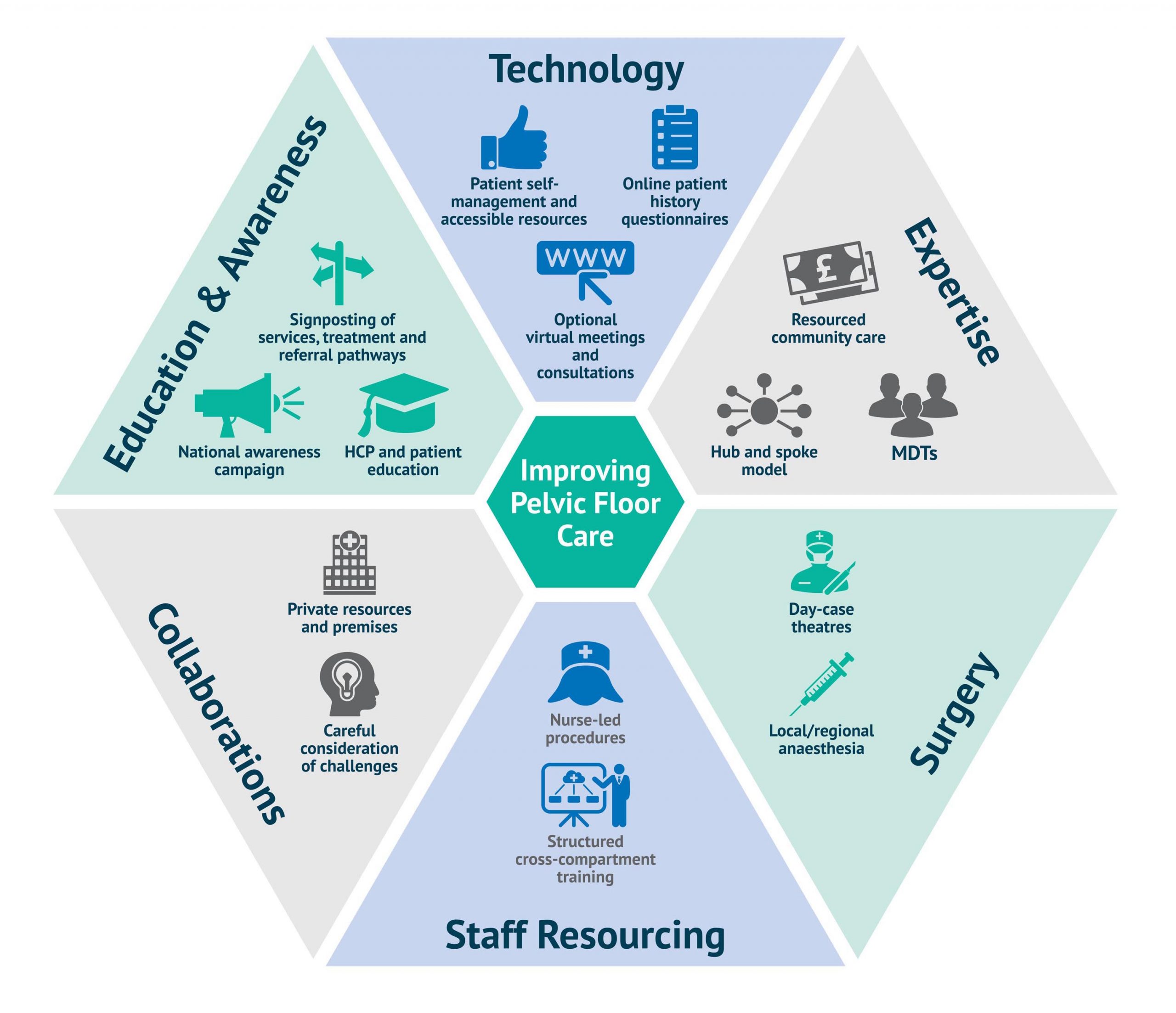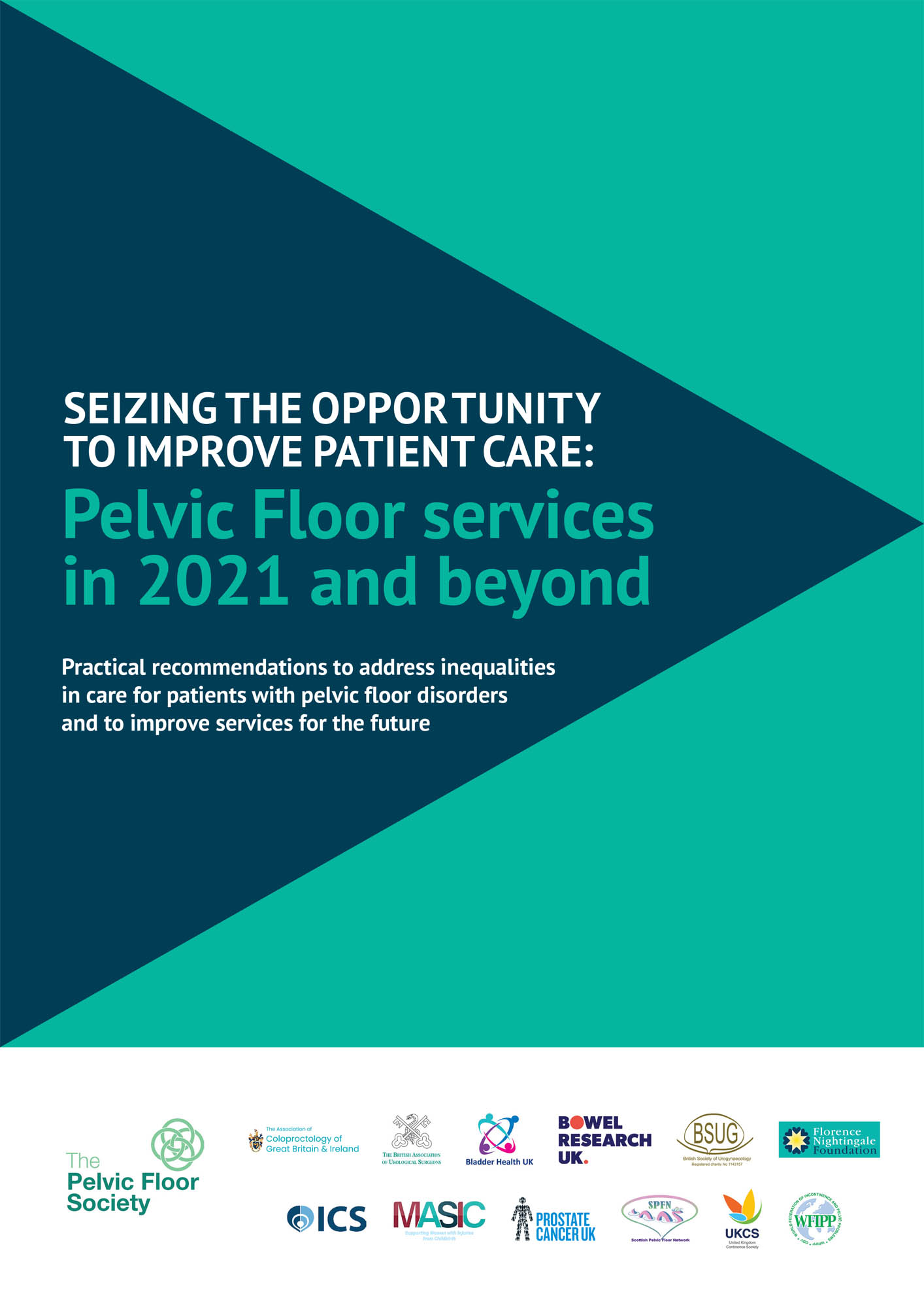

About the report
‘Seizing the opportunity to improve patient care: Pelvic floor services in 2021 and beyond’ was written by a group of experts working with people suffering from pelvic floor and continence issues. The report calls for action to address stark inequalities in care across the UK’s pelvic floor services. It offers local and national recommendations to improve patient outcomes.
The report highlights six key areas for change.
- Education and awareness
- Technology-enabled care
- Integration of expertise
- Surgery procedures and premises
- Utilising human resources
- Collaborations and freeing up resources


About pelvic floor disorders
Pelvic floor and continence patients have been neglected for years.
The COVID-19 pandemic has magnified existing disparities in services, and led to unacceptable delays in patients’ access to treatment.
When treatment to the pelvic floor is delayed, it becomes more intensive, requiring additional resource and cost. Delays also have a significant impact on patients’ quality-of-life, mental health and wellbeing. If diagnosed quickly, symptoms can be improved before they become severe.

